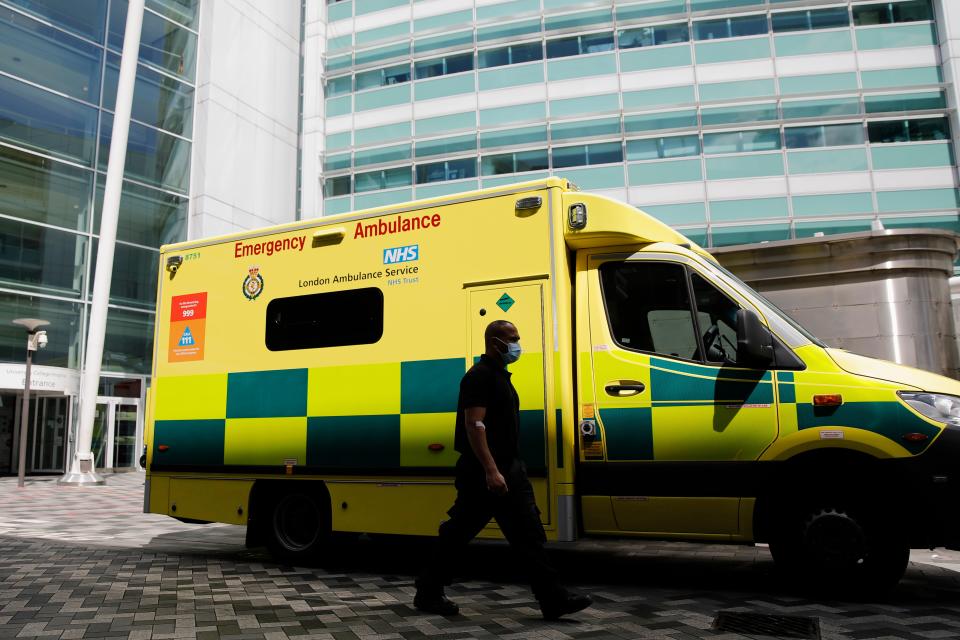Coronavirus cases rise by more than 2,000 for fourth day in a row as death toll falls to 8

Coronavirus cases have risen by more than 2,000 for the fourth day in a row.
The government confirmed there were 2,659 new cases reported on Wednesday.
Another eight people have also died with COVID-19, bringing the official death toll in the UK to 41,594.
There were 2,988 new cases on Sunday, the highest daily increase since 22 May, with another 2,948 on Monday and 2,420 on Tuesday.
Read more: Stop blaming young people for the spread of coronavirus, scientists tell government
The news follows the government’s announcement that it will bring in greater social-distancing restrictions in England as it seeks to curb the rise in infections.
From Monday, social gatherings of more than six people will be illegal in England, down from the current limit of 30.
The new limit will apply to gatherings indoors and outdoors, including private homes as well as parks, pubs and restaurants.
Boris Johnson laid out the new restrictions at a press conference in Downing Street on Wednesday.
He said: “So in England from Monday we are introducing the rule of six.

“You must not meet socially in groups of more than six and if you do, you will be breaking the law.
“This will apply in any setting indoors or outdoors, at home or in the park.
“The ban will be set out in law and it will be enforced by the police, and anyone breaking the rules risks being dispersed, fined, and possibly arrested.”
Read more: Boris Johnson unveils coronavirus plan to get some normality by Christmas
The prime minister said there would be some limited exemptions: for example, if a single household or support bubble is larger than six, it will still be allowed to gather.
He said COVID-secure venues like places of worship, gyms, restaurants and hospitality venues could still hold more than six in total.
But he said within those venues there must not be individual groups larger than six and groups must not mix socially or form larger groups.
Watch: What are the current UK government guidelines on face coverings within schools?
England’s chief medical officer Professor Chris Whitty said the number of coronavirus cases has been increasing “much more rapidly” over the past few days.
While the numbers among older people and children remained flat, he said, in other age groups there had been “rapid upticks”.
Among 17- to 18-year-olds and 19- to 21-year-olds, the numbers had gone up “really quite steeply” since mid-August, he said.
Without action, Prof Whitty said, data suggests Britain would be on a path “extremely similar” to France, where numbers have continued to rise.
Coronavirus: what happened today
Click here to sign up to the latest news, advice and information with our daily Catch-up newsletter

 Yahoo Sport
Yahoo Sport 






































